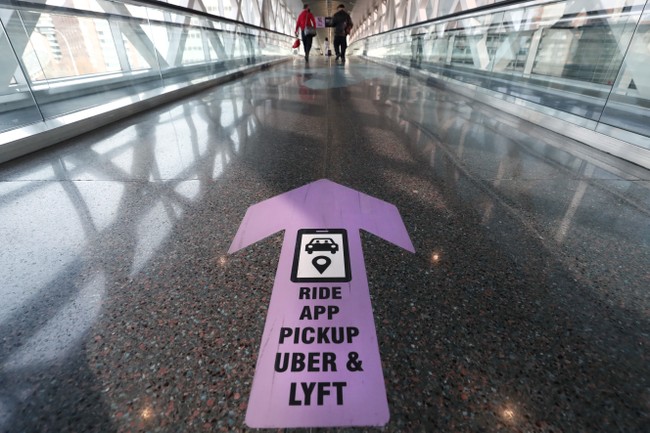
Earlier this month, we looked at the situation in Minneapolis, where the City Council passed new regulations leading Uber and Lyft to declare that they would be pulling out of the tri-city area. Such a change would obviously produce dramatic, negative outcomes for commuters, particularly among lower-income residents and those with mobility issues who rely on the ridesharing services to get to work, medical appointments, and basic shopping needs. People immediately began scrambling and seeking alternatives while far smaller ridesharing outfits were contacted to see if they could fill the void. This week, the City Council appeared to back off, at least for the moment, pushing back the implementation of the new rules to July 1. But they aren’t canceling it entirely. (National Review)
Facing the prospect of Uber and Lyft abandoning their city in a few weeks, Minneapolis’s city council voted unanimously on Thursday to push back the implementation of a new rideshare pay policy by two months.
But the far-left council rejected a proposal to rescind the controversial ordinance that has led to concerns among many residents who rely on the rideshare giants to get to their jobs and medical appointments. And the council refused to lower mandated driver pay rates to a level that a state study found would ensure drivers earn at least minimum wage.
The decision to delay the implementation of the city’s rideshare pay rules from May 1 to July 1 was intended to buy time for the Minnesota legislature to implement a statewide policy that could override the city’s ordinance and for upstart rideshare companies looking to replace Uber and Lyft to enter the market.
It’s unclear what a two-month delay will do to fix this situation absent other changes to the new policy. A spokesperson for Lyft said that they will continue operating in Minneapolis until July and monitor the situation, but they will still pull out unless the new mandatory pay rates for drivers come down. The council claims that there will be no policy change and that at least four smaller rideshare companies have approached them about replacing Uber and Lyft, and “that takes time.”
That may be true, but none of those smaller companies have anywhere near the number of cars and drivers that would be required to replace the millions of rides that the two major competitors provide each month. It is also unknown how functional their apps are or how quickly people would be willing or able to make the switch. Of course, to be fair, there would be a lot of Uber and Lyft drivers out there suddenly looking for work if this happened, so perhaps they might be able to expand quickly enough to meet current demand levels.
The main problem still seems to be that the far-left wing of the City Council is being bullheaded about this and is unwilling to consider alternatives. Nobody in the city was clamoring to have the cost of their rides go up, particularly under the current economic conditions. While I’m sure that the drivers wouldn’t object to a higher rate, they wouldn’t have already been driving if the situation wasn’t working out for them. And if higher costs result in fewer commuters using the service, they will make less money in the end anyway.
Both Uber and Lyft have said they are open to compromise. The state labor board study (which the City Council refused to wait for or read) suggested pay schedules that are lower than what is being proposed, but would still bring driver compensation into the range of the minimum wage. Those levels would be acceptable to Uber and Lyft, but the City Council is taking a “our way or the highway” approach and refusing to consider them.
It’s clear that some sort of change is in order. If enough citizens of Minneapolis are negatively impacted by these events, they can still take matters into their own hands. Perhaps what they need more than anything else is a new set of faces on the City Council. But recent trends in Minneapolis suggest that the voters there will rarely act in their own interests once the hard left has staked out a position.










